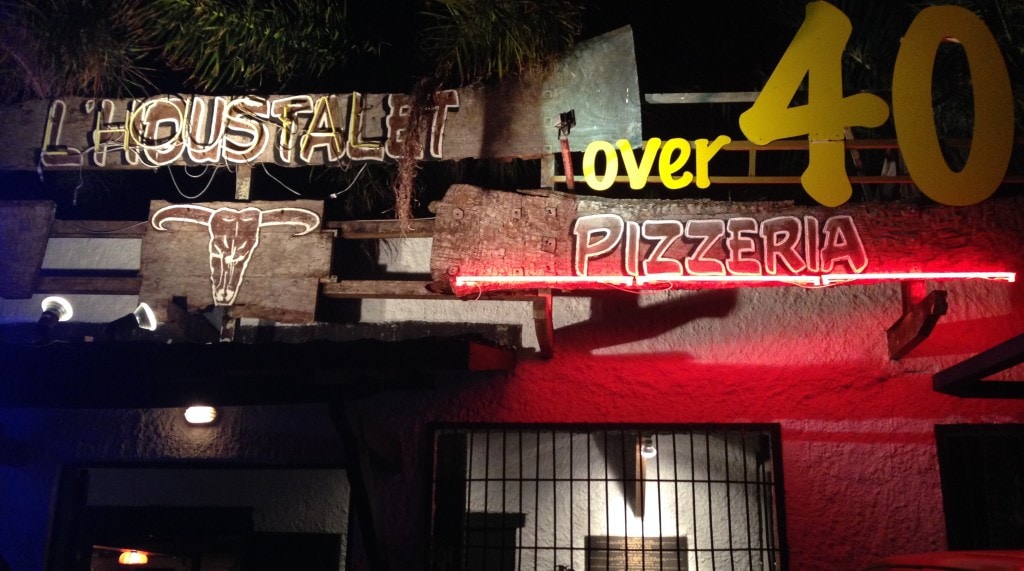After a delightful yet simple banana pancake on my first breakfast in Vanuatu, I was craving another serving on the second morning.
“Sorry, Madam, we have run out of bananas,” said the waitress, apologetically, “The entire island has run out, you won’t find them at the markets anywhere in the island”.
Typhoon Pam had a devastating impact on the local crops in Vanuatu practically eliminating the bananas, a main staple in most Pacific islands. Until the next crop would be ready for harvest, ni-Vanuatu would have to live of anything but bananas.
A trip down to the colorful, buzzy and organized local market revealed just that: no bananas in sight. Instead, I unexpectedly saw Chinese pok choi spinach, a vegetable I do not recall having seen three years ago when I first visited the country, in abundance. Coconuts, another scarcity but one which faired better after the storm, thanks to its thick husks, was less pervasive than before. I could see only very few types of produce on offer at every stall. As opposed to the grapefruit, paw paw, strawberries and abundance of other fruits I saw pomelos and root vegetables.
Vanuatu’s main island of Efate, where the international airport is, offers a multitude of restaurant alternatives. From high-end Japanese Tapanyaki to romantic evenings by the beach, curry places, seafood dive bars, sailor restaurants, yatchies bars, Chinese restaurants, fried-chicken outlets, French bakeries, you name it. There is also a relatively large array of fine-dining options charging international prices.
If you would pick a guide book from a few years ago you would most likely see the same recommendations as today. The most popular options have not changed in years. For the longest-standing and most historically important restaurant look no further than L’Houstalet, a restaurant that was an institution even before the Constitution was signed, in 1979, in the restaurants dining room.
This French-Melanesian restaurant run by Clement Martinez has been open for over four decades and it was the place where Vanuatu’s Constitution was signed in the 70s.
Arriving from France in 1969 Clement opened L’Houstalet to offer a series of french favorites with a Pacific twist. The restaurant is famous for wild pigeon, coconut crab and flying fox, which is served stuffed with its own guts. There are also French favorites like snails on garlic sauce and flambe prawns, which he flambes table-side. The restaurant also makes pizza to take away.
As I wait for my dining companion to arrive I see a stream of customers coming to retrieve their orders. A strange opportunity to have capitalized on in a country where food delivery is inexistent.
This was my second time at the restaurant and, on both occasions, I had to order the traditional onion soup, filled with sweet and soft onion and melted cheese, and the flying fox. Well, I had to get my dining companions to order the flying fox, I just could not stomach it.
So what does a Flying Fox look and taste like?
Flying foxes are glorified versions of a fruit bat. In the close proximity of a photograph they look pretty cute. In the wild, they are rather smelly. Clement cleans the animals and re-stuffs them with their own guts in the hopes that their fruit-based diet gives the meat a sweet fruity taste, much like stuffing the turkey with cranberry. The dish is cooked in a thick red wine sauce and served with white rice.
The smell and taste is gamey, a mix between a pigeon, a hare and a duck. I could not swallow the meat, it was way too meaty and pungent for me. Perhaps it was because I knew what I was eating and how it had been cooked that I just could not enjoy it.
L’Houstalet is a laid-back place mixing a sense of countryside France, stucco walls and dark wood beams, with a dash of tropical paradise. There are cats roaming around, brushing themselves against the client’s legs and a thriving plant-based garden that surrounds the tables. Smoking is still allowed in one part of the dining room.
Clement, sporting a white ponytail and a red flowery shirt, takes the orders, his heavy French accent not one bit eroded after forty years in the South Pacific. He laughs when we inquire about the fun story at the back of the menu which tells of a time when a journalist asked about the flying fox’s stuffing. He must have laughed at this joke a million times as the menu has never changed in the forty years. He remains polite, quiet and without saying a word, almost like a father telling the children off, and shows he is there to get the orders and efficiently pass them on to the kitchen. The staff is on it, they are organized and fast, this is the best service we got in Efate.
